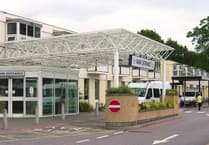THERE are plenty of negative day-to-day effects of coronavirus, but one way in which we could all benefit is by changing how we travel.
As shops and workplaces open up more people will be on the move, although public transport remains a sticking point for many.
Recent government statistics reveal that travel by bicycle had more than doubled by the end of May compared to pre-lockdown figures from the start of March, raising the question: Could cycling and walking make a permanent comeback?
The picture in Woking
When it comes to walking and cycling levels, Woking sits mid-table compared to the rest of Surrey.
According to the July 2019 National Travel Survey (NTS), 77% of people in the borough cycled or walked for over 10 minutes each week. (This sounds impressive until you realise it means that around 20,000 adults didn’t walk or cycle for more than 10 minutes in seven days.) Just over a third cycled or walked five times a week for any reason.
The NTS figures showed that 15% of people in the borough walked at least 10 minutes for travel (as opposed to leisure) five times a week, while a tiny 1.4% cycled.
Thanks to restrictions around public transport, we could see a natural increase in walking and cycling trips across the borough, but only if we make a conscious decision to change.
The role of infrastructure
To boost active travel, communities need to encourage walking and cycling and Woking is well served by its own cycle network. Just google “Woking Planet Trail” to see the routes and the time it takes to cycle to the centre of town from areas as far away as Guildford.
If you live further afield, check out the Get Started page on the Active Surrey website to find a link to an interactive map of Surrey cycle routes. If you think your journey is too long to cycle, check out the new generation of e-bikes. These can be bought through the government’s cycle to work scheme, links to which are also on Active Surrey’s Get Started webpage.
Dedicated cycle paths have the advantage of removing the worries that some people have over the dangers of road use for cycling – although a 2017 study on active commuting involving 263,000 people in The BMJ (British Medical Journal) showed that the risks of being injured in traffic accidents are far outweighed by the health benefits of the bicycle commute.
When it comes to walking, the only kit you need is a decent pair of shoes and, like cycling, you can accurately predict how long your journey will take each day while avoiding others.
Woking town centre is largely pedestrianised, which helps in the era of social distancing and will be important as local businesses open up. The new footbridge being built across the Basingstoke Canal means people can avoid the need to cross the busy Chobham Road, further boosting active travel to the centre.
Get into good habits early
The Chief Medical Officer advises that children get 60 minutes of physical activity a day, yet Sport England’s Active Lives Children and Young People Survey shows almost half of children under 16 in Surrey aren’t hitting that figure. Even in normal times, 25% are doing less than 30 minutes.
Something as simple as walking, cycling or scooting to school could go a long way to improving those figures, plus study after study shows that being active helps children to learn.
Parents accompanying children obviously benefit too, while streets are made safer by taking cars away from schools.
It might rain!
Apart from giving us something else to talk about, unpredictable weather is the price of living in the UK but umbrellas and/or waterproofs will keep you dry on all but the worst days. Chances are you’ll be genuinely surprised at how seldom it rains during your active journeys.
A life-changer
When it comes to the health benefits of active travel, the authors of The BMJ study noted above reported that: “Cycle commuters had a 52% lower risk of dying from heart disease and a 40% lower risk of dying from cancer. They also had [a] 46% lower risk of developing heart disease and a 45% lower risk of developing cancer.”
The benefits of walking were less pronounced, but walkers still had a 36% lower risk of dying from heart disease.
Including more activity in our travel – particularly if it takes in some green space – can also boost mental health. And cutting unnecessary trips by car improves air quality, helping those with respiratory and other health conditions.
So don’t let the good habits learnt in lockdown go to waste; for your own health and the benefit of others across Woking, hit the streets!
Active Surrey is a not for profit, partner funded organisation dedicated to the support, promotion and development of sport and active lifestyles throughout Surrey. For more information, visit www.activesurrey.com




